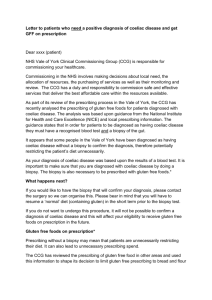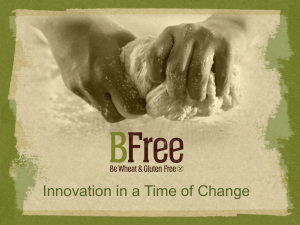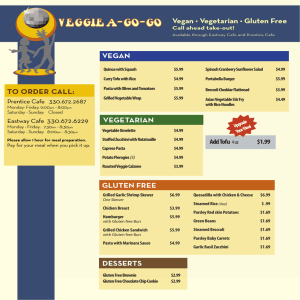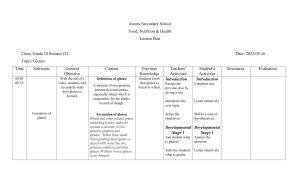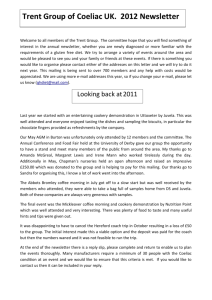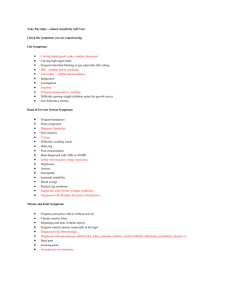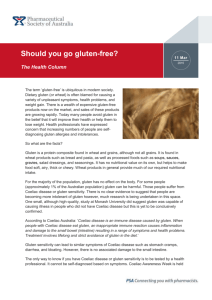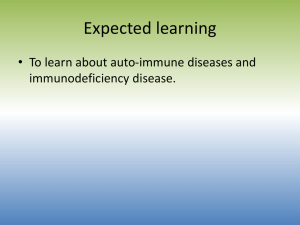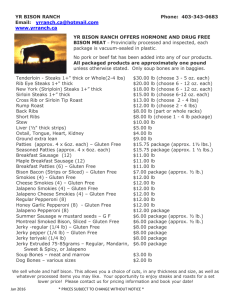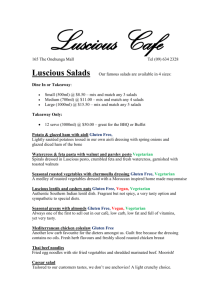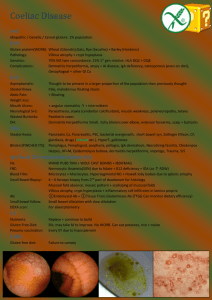Is gluten challenge really necessary for the diagnosis of coeliac
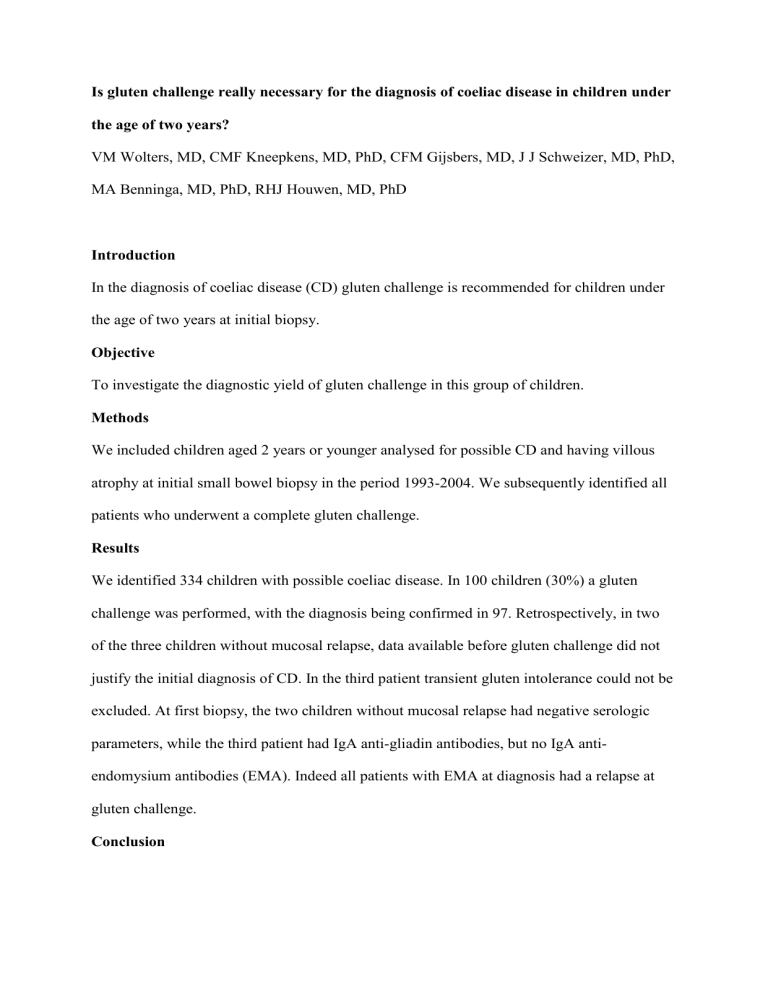
Is gluten challenge really necessary for the diagnosis of coeliac disease in children under the age of two years?
VM Wolters, MD, CMF Kneepkens, MD, PhD, CFM Gijsbers, MD, J J Schweizer, MD, PhD,
MA Benninga, MD, PhD, RHJ Houwen, MD, PhD
Introduction
In the diagnosis of coeliac disease (CD) gluten challenge is recommended for children under the age of two years at initial biopsy.
Objective
To investigate the diagnostic yield of gluten challenge in this group of children.
Methods
We included children aged 2 years or younger analysed for possible CD and having villous atrophy at initial small bowel biopsy in the period 1993-2004. We subsequently identified all patients who underwent a complete gluten challenge.
Results
We identified 334 children with possible coeliac disease. In 100 children (30%) a gluten challenge was performed, with the diagnosis being confirmed in 97. Retrospectively, in two of the three children without mucosal relapse, data available before gluten challenge did not justify the initial diagnosis of CD. In the third patient transient gluten intolerance could not be excluded. At first biopsy, the two children without mucosal relapse had negative serologic parameters, while the third patient had IgA anti-gliadin antibodies, but no IgA antiendomysium antibodies (EMA). Indeed all patients with EMA at diagnosis had a relapse at gluten challenge.
Conclusion
Routine gluten challenge in children less than 2 years at initial diagnosis of CD has an extremely low diagnostic yield. We suggest that routine gluten challenge in this group of patients is not necessary when patients have villous atrophy in combination with EMA.
Therefore, a revision of the current diagnostic criteria has to be considered.
